CET to NDT Converter
Time Difference
Central European Time is 4 hours and 30 minutes ahead of Newfoundland Standard Time
10:30 am10:30 in CET is 6:00 am06:00 in NST
CET to NDT call time
Best time for a conference call or a meeting is between 11:30am-6pm in CET which corresponds to 8am-2:30pm in NDT
10:30 am10:30 Central European Time (CET). Offset UTC +1:00 hour
6:00 am06:00 Newfoundland Standard Time (NST). Offset UTC -3:30 hours
10:30 am10:30 CET / 6:00 am06:00 NST
| CET | NST |
|---|---|
| 12am (midnight) | 7:30 pm |
| 1am | 8:30 pm |
| 2am | 9:30 pm |
| 3am | 10:30 pm |
| 4am | 11:30 pm |
| 5am | 12:30 am |
| 6am | 1:30 am |
| 7am | 2:30 am |
| 8am | 3:30 am |
| 9am | 4:30 am |
| 10am | 5:30 am |
| 11am | 6:30 am |
| 12pm (noon) | 7:30 am |
| 1pm | 8:30 am |
| 2pm | 9:30 am |
| 3pm | 10:30 am |
| 4pm | 11:30 am |
| 5pm | 12:30 pm |
| 6pm | 1:30 pm |
| 7pm | 2:30 pm |
| 8pm | 3:30 pm |
| 9pm | 4:30 pm |
| 10pm | 5:30 pm |
| 11pm | 6:30 pm |
| 0:00 | 19:30 |
| 1:00 | 20:30 |
| 2:00 | 21:30 |
| 3:00 | 22:30 |
| 4:00 | 23:30 |
| 5:00 | 0:30 |
| 6:00 | 1:30 |
| 7:00 | 2:30 |
| 8:00 | 3:30 |
| 9:00 | 4:30 |
| 10:00 | 5:30 |
| 11:00 | 6:30 |
| 12:00 | 7:30 |
| 13:00 | 8:30 |
| 14:00 | 9:30 |
| 15:00 | 10:30 |
| 16:00 | 11:30 |
| 17:00 | 12:30 |
| 18:00 | 13:30 |
| 19:00 | 14:30 |
| 20:00 | 15:30 |
| 21:00 | 16:30 |
| 22:00 | 17:30 |
| 23:00 | 18:30 |
Central European Time
Offset: CET is 1 hour ahead Greenwich Mean Time (GMT) and is used in Europe
Countries: It is used in following countries: Andorra, Albania, Austria, Bosnia & Herzegovina, Belgium, Switzerland, Czech Republic, Germany, Denmark, Algeria, Spain, France, Gibraltar, Croatia, Hungary, Italy, Liechtenstein, Luxembourg, Monaco, Montenegro, North Macedonia, Malta, Netherlands, Norway, Poland, Serbia, Sweden, Slovenia, Svalbard & Jan Mayen, Slovakia, San Marino, Tunisia, Vatican City
Principal Cities: The largest city in the CET timezone is Berlin from Germany with population about 3.426 million people. Other major cities in the area are Madrid, Rome, Paris, Algiers
German: MEZ - Mitteleuropäische Zeit
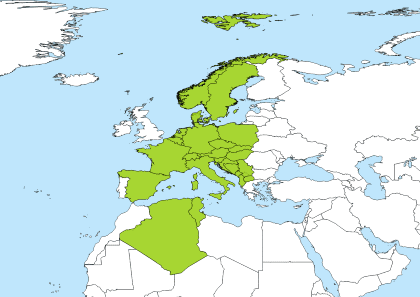
Daylight Saving: This is a standard timezone, however during summer some places switch clocks for one hour forward when daylight saving comes into effect and observe Central European Summer Time (CEST).
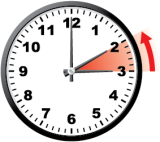 Start: Central European Time (CET) started on Sunday, October 27, 2024 at 3:00 am local time and clocks were set one hour back to Sunday, October 27, 2024, 2:00 am. Standard time starts annually the on last Sunday of October.
Start: Central European Time (CET) started on Sunday, October 27, 2024 at 3:00 am local time and clocks were set one hour back to Sunday, October 27, 2024, 2:00 am. Standard time starts annually the on last Sunday of October.
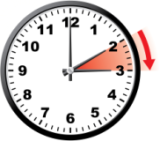 End: Central European Time (CET) ends on Sunday, March 30, 2025 at 2:00 am local time and clocks are set one hour forward to Sunday, March 30, 2025, 3:00 am local daylight time instead. Standard time starts annually the on last Sunday of March.
End: Central European Time (CET) ends on Sunday, March 30, 2025 at 2:00 am local time and clocks are set one hour forward to Sunday, March 30, 2025, 3:00 am local daylight time instead. Standard time starts annually the on last Sunday of March.
CET representations, usage and related time zones
- +01 - basic short
- +0100 - basic
- +01:00 - extended
- +0100 - sign character (+) followed by a four digit time providing hours (01) and minutes (00) of the offset. Indicates one hour and zero minutes time differences to the east of the zero meridian.
- Alpha - Military abbreviation for CET
- A - short form of 'Alpha'
- Africa/Algiers
- Africa/Ceuta
- Africa/Tunis
- Arctic/Longyearbyen
- Atlantic/Jan_Mayen
- CET
- Europe/Amsterdam
- Europe/Andorra
- Europe/Belgrade
- Europe/Berlin
- Europe/Bratislava
- Europe/Brussels
- Europe/Budapest
- Europe/Busingen
- Europe/Copenhagen
- Europe/Gibraltar
- Europe/Ljubljana
- Europe/Luxembourg
- Europe/Madrid
- Europe/Malta
- Europe/Monaco
- Europe/Oslo
- Europe/Paris
- Europe/Podgorica
- Europe/Prague
- Europe/Rome
- Europe/San_Marino
- Europe/Sarajevo
- Europe/Skopje
- Europe/Stockholm
- Europe/Tirane
- Europe/Vaduz
- Europe/Vatican
- Europe/Vienna
- Europe/Warsaw
- Europe/Zagreb
- Europe/Zurich
- Poland
- BST - British Summer Time
- CET - Central European Time
- IST - Irish Standard Time
- WEST - Western European Summer Time
- A - Alpha Time Zone
- CET - Central European Time
- MEZ - Mitteleuropäische Zeit
- WAT - West Africa Time
- WST - Western Sahara Summer Time
- BMT - Biel Mean Time
Newfoundland Daylight Time
Offset: NDT is 2 hours and 30 minutes behind Greenwich Mean Time (GMT) and is used in North America
Countries: It is used in following countries: Canada
Principal Cities: The largest city in the NDT timezone is St Johns from Canada with population about 99,182 people. Other major cities in the area are Mount Pearl, Corner Brook, Conception Bay South
French: HAT - Heure Avancée de Terre-Neuve
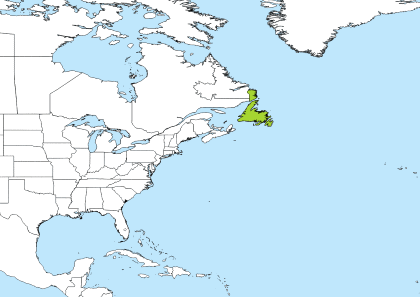
Daylight Saving: Newfoundland Daylight Time (NDT) is a daylight saving/summer time zone, however during winter some places adjust time for one hour back and observe Newfoundland Standard Time (NST).
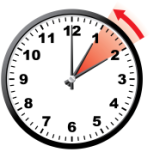 End: Newfoundland Daylight Time (NDT) has ended on Sunday, November 3, 2024 at 2:00 am local time and clocks were set one hour back to Sunday, November 3, 2024, 1:00 am local standard time instead. Daylight saving ends annually the on first Sunday of November
End: Newfoundland Daylight Time (NDT) has ended on Sunday, November 3, 2024 at 2:00 am local time and clocks were set one hour back to Sunday, November 3, 2024, 1:00 am local standard time instead. Daylight saving ends annually the on first Sunday of November
 Start: Newfoundland Daylight Time (NDT) starts on Sunday, March 9, 2025 at 2:00 am local time and clocks are set one hour forward to Sunday, March 9, 2025, 3:00 am. Daylight saving starts annually the on second Sunday of March
Start: Newfoundland Daylight Time (NDT) starts on Sunday, March 9, 2025 at 2:00 am local time and clocks are set one hour forward to Sunday, March 9, 2025, 3:00 am. Daylight saving starts annually the on second Sunday of March
NDT representations, usage and related time zones
- -0230 - basic
- -02:30 - extended
- -0230 - sign character (-) followed by a four digit time providing hours (02) and minutes (30) of the offset. Indicates two hour and thirty minutes time differences to the west of the zero meridian.
- America/St_Johns
- Canada/Newfoundland
